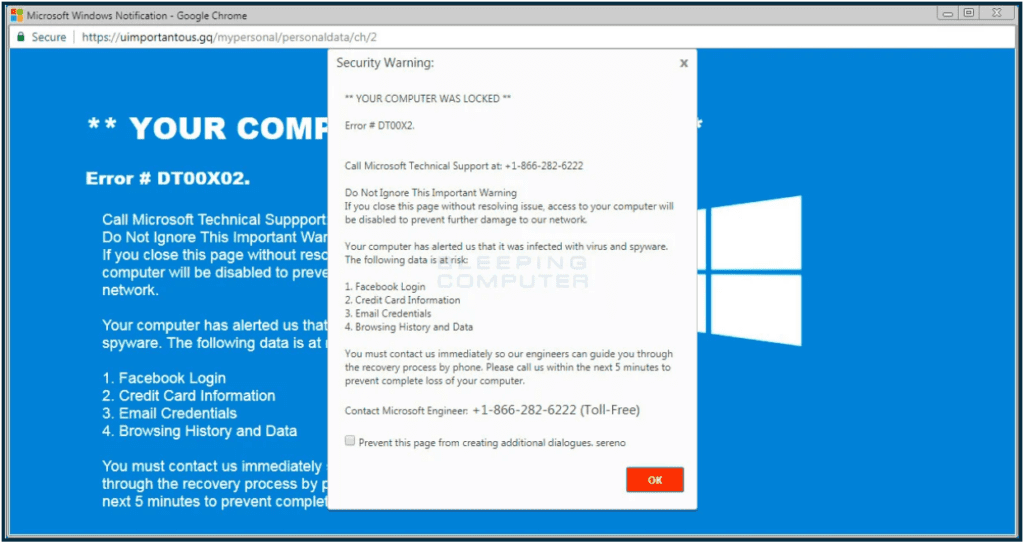Security Awareness Training – Why Do We Need it?

We’ve all heard the story before, the computer literate elderly neighbor gets scammed and locked out of her computer. The other day, my friend’s mom had such an incident occur. Whether it’s weak passwords, a click on a phishing email, or a visit to a flawed website, we find ourselves dealing with a computer issue. How does this keep happening and what can we do to ensure the safety of our data? My friend’s mom, Sally, was confused and didn’t know how this happened. The “issue” turned out to be an instance of spyware residing on her computer. She had inadvertently clicked on something, somewhere, either on a website, or within an email, and she got a warning pop-up very similar to the below example.

To help Sally avoid similar issues in the future, and considering she falls into a vulnerable class, I sent her a link to a training video. Since taking the Home course and learning more about how to protect her data and privacy, Sally now knows how to identify and prevent cyberattacks on her home computer.
Why it matters
The risks are everywhere for our family and friends and the consequences of an incident are dire. So, what can we do? Taking time to learn about cyber threats and how to identify potential scams, we recommend taking a home course such as this one offered by KnowBe4. The Home course is an online computer-based training course that teaches the student about online safety and security. The course is designed for individuals and families and covers basic information security concepts which can help people stay safe and secure online. Topics like passwords, data security, social media, and home network security among many others are presented and described in detail. The course walks the student through these topics and reinforces concepts through videos, interactive games, quizzes, and rich graphics.
Who’s at risk?
Seniors are in one of the highest risk groups for cyber security threats, primarily based on their attitudes, beliefs, and perception about security. More than a third of U.S. seniors (38%) surveyed say someone has tried to scam them online, and 28% have downloaded a computer virus, according to research conducted by Home Instead, Inc., Here is a link to the article about the risks seniors face.
So they are aware, but do they care?
Just because someone is aware of the risks, doesn’t always mean they care or want to do anything about it. Sally has the ability to change her passwords so they are more complex, but she is not necessarily motivated to do so. So, it begs the question, why do we need information security awareness training?
“Despite all the security hardware and software used in your organization, one of the most important factors in data security is human behavior. Uninformed users can jeopardize an entire system, oftentimes unintentionally, simply by clicking on a misleading link or downloading a malicious file…Security awareness training is necessary to help users identify threats and take proper action in response. It provides all users need to know how to protect against threats and stay up to date on the latest types of attacks.” (Plante Moran and PATEL). For more information, see this article about the need for security awareness training.
Contact Us
To access the Home course or if you would like more information on this topic, contact us at 2Bware.
